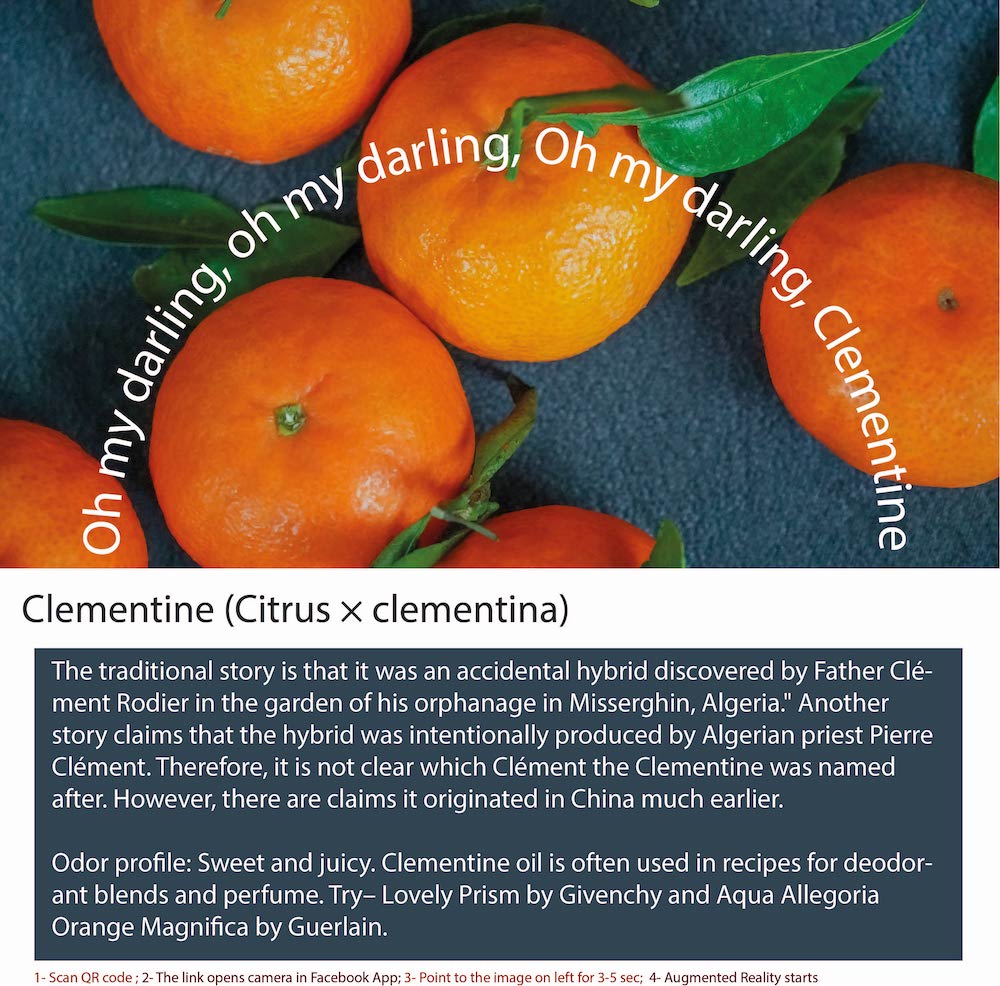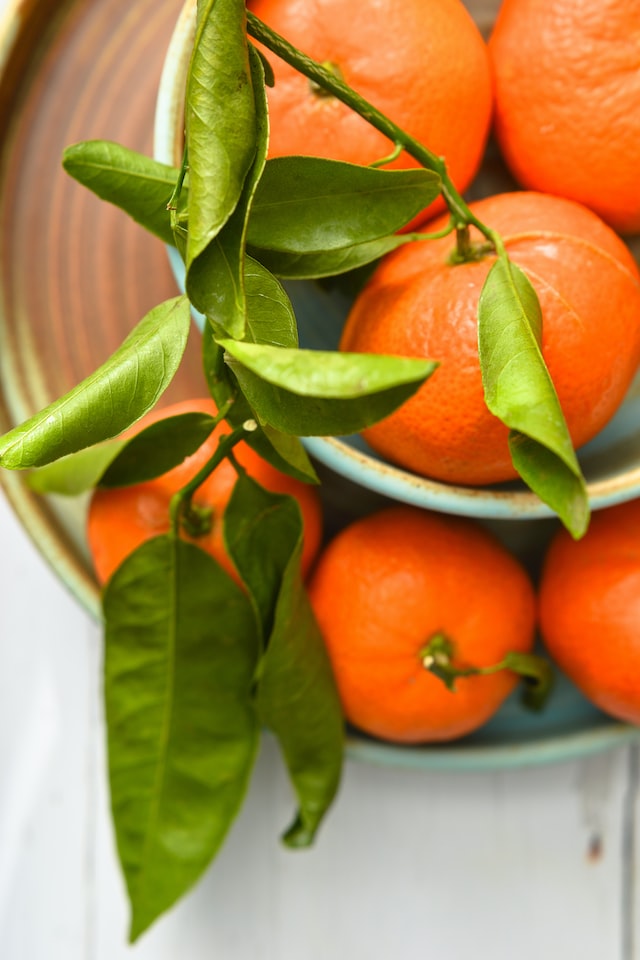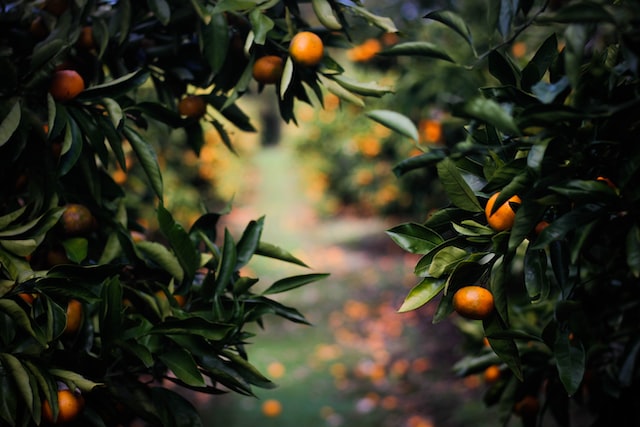Exploring the Essence of Clementine Aroma
Clementine: The Citrus Jewel of Fragrance and Flavor - From Perfumes to Fun Crazy Facts
Clementine, a delectable and aromatic citrus fruit, is a true gem among the citrus family. This delightful fruit has made its mark in various domains, including perfumes, fragrance, therapeutic oils, food, medicinal systems, history, and even fun crazy facts. In this article, we embark on a journey to explore the captivating allure of clementine, uncovering its diverse uses and intriguing characteristics that have fascinated people around the world.
1. Clementine in Perfumes and Fragrance
Clementine's invigorating and sweet scent has inspired perfumers to incorporate its essence into fragrances. The fragrance of clementines exudes a fresh and zesty charm that infuses perfumes with a burst of citrusy vitality. Clementine extract or essential oil is used to create scents that evoke feelings of energy, happiness, and a zest for life.
2. Clementine in Therapeutic Oils
Clementine essential oil is celebrated for its therapeutic properties in aromatherapy. Inhalation of clementine oil is believed to uplift the mood and relieve stress and anxiety. Its delightful aroma has a rejuvenating effect on the senses, making it a valuable ingredient in relaxation and stress-relief blends.
3. Clementine in Culinary Delights
Clementines are treasured for their succulent sweetness and ease of peeling, making them a popular choice as a snack or dessert fruit. Their vibrant flavor is incorporated into various culinary delights, including salads, sauces, and desserts. Clementine zest is also utilized to add a burst of citrusy goodness to baked goods and savory dishes.
4. Clementine in Medicinal Systems
Beyond their delectable taste and fragrance, clementines offer nutritional benefits. They are rich in vitamin C, antioxidants, and essential nutrients, contributing to overall health and well-being. Vitamin C supports the immune system, while antioxidants help protect the body from oxidative stress.
5. Historical Significance of Clementine
Clementines trace their roots to Algeria, where they were discovered in the 20th century. The fruit is believed to be a hybrid of mandarin oranges and sweet oranges. Over time, clementines gained popularity around the world due to their delightful taste and easy-to-peel nature.
6. Fun and Crazy Facts about Clementine
a. Clementine's Name: The fruit is named after Father Clement Rodier, who is credited with first discovering and cultivating this sweet and seedless variety.
b. Holiday Tradition: Clementines are often associated with the holiday season and are a common sight in fruit baskets and festive displays.
c. Travel Companion: Clementines are a favorite snack among travelers due to their convenience and ability to be easily packed and consumed on the go.
d. Citrusy Folklore: In folklore, clementines are often associated with prosperity, good fortune, and joy, making them a symbolic gift during celebrations.
e. Culinary Creativity: The sweet and tangy flavor of clementines makes them a versatile ingredient in both sweet and savory dishes, adding a burst of freshness and zest.
Clementine, with its captivating aroma and delectable taste, stands as a citrus jewel cherished in perfumes, therapeutic oils, food, and beyond. From its uplifting fragrance to its nutritional benefits and historical significance, clementine continues to captivate and inspire. Whether it's infusing perfumes with a burst of citrusy vitality or contributing to culinary delights with its succulent sweetness, clementine's allure lies in its versatility and delightful essence. As we celebrate clementine's contributions to various aspects of human life, it stands as a testament to the joy and vibrancy that nature's treasures bring to our senses and culinary experiences.
Clementine, a delectable and aromatic citrus fruit, is a true gem among the citrus family. This delightful fruit has made its mark in various domains, including perfumes, fragrance, therapeutic oils, food, medicinal systems, history, and even fun crazy facts. In this article, we embark on a journey to explore the captivating allure of clementine, uncovering its diverse uses and intriguing characteristics that have fascinated people around the world.
1. Clementine in Perfumes and Fragrance
Clementine's invigorating and sweet scent has inspired perfumers to incorporate its essence into fragrances. The fragrance of clementines exudes a fresh and zesty charm that infuses perfumes with a burst of citrusy vitality. Clementine extract or essential oil is used to create scents that evoke feelings of energy, happiness, and a zest for life.
2. Clementine in Therapeutic Oils
Clementine essential oil is celebrated for its therapeutic properties in aromatherapy. Inhalation of clementine oil is believed to uplift the mood and relieve stress and anxiety. Its delightful aroma has a rejuvenating effect on the senses, making it a valuable ingredient in relaxation and stress-relief blends.
3. Clementine in Culinary Delights
Clementines are treasured for their succulent sweetness and ease of peeling, making them a popular choice as a snack or dessert fruit. Their vibrant flavor is incorporated into various culinary delights, including salads, sauces, and desserts. Clementine zest is also utilized to add a burst of citrusy goodness to baked goods and savory dishes.
4. Clementine in Medicinal Systems
Beyond their delectable taste and fragrance, clementines offer nutritional benefits. They are rich in vitamin C, antioxidants, and essential nutrients, contributing to overall health and well-being. Vitamin C supports the immune system, while antioxidants help protect the body from oxidative stress.
5. Historical Significance of Clementine
Clementines trace their roots to Algeria, where they were discovered in the 20th century. The fruit is believed to be a hybrid of mandarin oranges and sweet oranges. Over time, clementines gained popularity around the world due to their delightful taste and easy-to-peel nature.
6. Fun and Crazy Facts about Clementine
a. Clementine's Name: The fruit is named after Father Clement Rodier, who is credited with first discovering and cultivating this sweet and seedless variety.
b. Holiday Tradition: Clementines are often associated with the holiday season and are a common sight in fruit baskets and festive displays.
c. Travel Companion: Clementines are a favorite snack among travelers due to their convenience and ability to be easily packed and consumed on the go.
d. Citrusy Folklore: In folklore, clementines are often associated with prosperity, good fortune, and joy, making them a symbolic gift during celebrations.
e. Culinary Creativity: The sweet and tangy flavor of clementines makes them a versatile ingredient in both sweet and savory dishes, adding a burst of freshness and zest.
Clementine, with its captivating aroma and delectable taste, stands as a citrus jewel cherished in perfumes, therapeutic oils, food, and beyond. From its uplifting fragrance to its nutritional benefits and historical significance, clementine continues to captivate and inspire. Whether it's infusing perfumes with a burst of citrusy vitality or contributing to culinary delights with its succulent sweetness, clementine's allure lies in its versatility and delightful essence. As we celebrate clementine's contributions to various aspects of human life, it stands as a testament to the joy and vibrancy that nature's treasures bring to our senses and culinary experiences.
To experience augmented reality, please open the Facebook-app using QR code and point to the image below
Revitalize Your Senses with Natural Citrus Essential Oils
Clementine is a citrus fruit that is similar to an orange, but with a slightly elongated shape and a slightly sweeter taste. It is a hybrid of a mandarin orange and a bitter orange. The fruit is easy to peel and can be eaten fresh or used in cooking and baking. Clementines are often considered a type of tangerine. They are typically in season from November to January.
Clementine essential oil is an essential oil that is extracted from the peels of clementine fruits. It is known for its fresh, sweet, and citrusy aroma. The essential oil is commonly used in aromatherapy for its uplifting and refreshing properties. It is also used in perfumery, soap making and other personal care products. Clementine essential oil is also used in cleaning products as it can help to remove tough stains, grease and dirt. It can also be used in culinary applications as a flavouring agent. However, it should be used with caution as it can cause skin irritation if used in high concentrations.
Clementine Fun facts:
- Clementines are actually a hybrid fruit, created by crossing a mandarin orange with a sweet orange.
- In the 1920s, clementines were first grown in Algeria by a French missionary named Father Clément Rodier, who named the fruit after himself.
- Clementines are one of the most seedless varieties of citrus, which makes them very easy to eat.
- Clementines are often considered a type of tangerine, but they are actually a hybrid of a mandarin orange and a bitter orange.
- Clementines are a good source of vitamin C, which is an important nutrient for maintaining healthy skin, teeth, and gums.
- Clementines are also a good source of potassium, which helps to regulate blood pressure and support heart health.
- Clementines are often used in holiday decorations, as they are a traditional Christmas fruit in many cultures.
- Clementine essential oil is believed to have a variety of therapeutic benefits, including reducing anxiety, improving mood, and promoting a sense of calm.
- In some countries, Clementines are known as "Christmas oranges" as they are traditionally given as gifts during the holiday season
- Clementines are considered easy to peel and segment, which makes them a popular choice for packing in children's lunch boxes.
Embrace the Joyful Aroma of Clementine
Clementines have a relatively short history, as they were first developed in the early 20th century. The fruit was named after a French missionary named Father Clément Rodier, who first grew it in his garden in Algeria. The fruit quickly gained popularity in Europe and eventually made its way to the United States.
In terms of cultural myths and legends, there doesn't seem to be any specific myths or legends associated with the clementine fruit specifically. However, as a type of citrus fruit, clementines may be included in some of the myths and legends surrounding other citrus fruits. For example, in ancient Chinese culture, citrus fruits were believed to have healing properties and were often used in traditional medicine. In medieval Europe, citrus fruits were considered a symbol of wealth and were often given as gifts to royalty and nobility.
As mentioned before, in some countries such as Spain, Italy, and Mexico, Clementines are known as "Christmas oranges" as they are traditionally given as gifts during the holiday season, and are part of the Christmas tradition.
In addition, the sweet and refreshing taste of clementine is enjoyed by many people around the world, and is often included in various culinary dishes and desserts.
In terms of cultural myths and legends, there doesn't seem to be any specific myths or legends associated with the clementine fruit specifically. However, as a type of citrus fruit, clementines may be included in some of the myths and legends surrounding other citrus fruits. For example, in ancient Chinese culture, citrus fruits were believed to have healing properties and were often used in traditional medicine. In medieval Europe, citrus fruits were considered a symbol of wealth and were often given as gifts to royalty and nobility.
As mentioned before, in some countries such as Spain, Italy, and Mexico, Clementines are known as "Christmas oranges" as they are traditionally given as gifts during the holiday season, and are part of the Christmas tradition.
In addition, the sweet and refreshing taste of clementine is enjoyed by many people around the world, and is often included in various culinary dishes and desserts.
Experience the Freshness of Clementine Fragrance
Clementine essential oil is used in perfumery for its fresh, sweet, and citrusy aroma. The oil is extracted from the peels of the clementine fruit and is used to add a bright and uplifting note to perfumes. Its scent is often described as fresh, sweet, and tangy, with a hint of orange blossom.
Clementine essential oil is often used in combination with other essential oils in perfumery to create unique and complex scents. For example, it can be blended with other citrus oils such as lemon and bergamot to create a fresh and invigorating scent. It can also be combined with floral oils such as jasmine and lavender to add a touch of sweetness and to balance out the citrusy notes.
Clementine essential oil is also used in perfumes for its therapeutic properties. The oil is believed to have a calming and uplifting effect on the mind, and is often used in perfumes that are intended to promote feelings of happiness and well-being.
It is important to note that clementine essential oil should be used in low concentrations, as it can cause skin irritation and sensitization if used in high concentrations. It is also important to use a reputable and pure essential oil, as some clementine essential oil may be adulterated with synthetic ingredients.
Clementine essential oil is often used in combination with other essential oils in perfumery to create unique and complex scents. For example, it can be blended with other citrus oils such as lemon and bergamot to create a fresh and invigorating scent. It can also be combined with floral oils such as jasmine and lavender to add a touch of sweetness and to balance out the citrusy notes.
Clementine essential oil is also used in perfumes for its therapeutic properties. The oil is believed to have a calming and uplifting effect on the mind, and is often used in perfumes that are intended to promote feelings of happiness and well-being.
It is important to note that clementine essential oil should be used in low concentrations, as it can cause skin irritation and sensitization if used in high concentrations. It is also important to use a reputable and pure essential oil, as some clementine essential oil may be adulterated with synthetic ingredients.
Our Commitment to Quality Citrus Scents
Clementines have appeared in various forms of popular culture.
It's worth noting that Clementine is also a name that could refer to a person, a fictional character or a brand, and some of the references above may refer to those cases.
- In literature, one of the most famous references to clementines is in the novel "The Road" by Cormac McCarthy, where a father and son survive a post-apocalyptic world, and a clementine serves as a symbol of hope and happiness in their otherwise dire circumstances.
- In music, the song "Clementine" is a traditional American folk song, the melody of which has been used in various forms and with different lyrics over the years.
- In movies, the movie "Clementine" is a drama film from 2004, directed by Lara Gallagher, which tells the story of a woman who has a romantic relationship with a man that is emotionally unstable.
- In video games, the game "Clementine" is an episodic adventure game developed and published by Telltale Games based on the comic book series "The Walking Dead." The game follows a young girl named Clementine as she tries to survive in a post-apocalyptic world filled with zombies.
It's worth noting that Clementine is also a name that could refer to a person, a fictional character or a brand, and some of the references above may refer to those cases.
Discover the Benefits of Natural Citrus Essential Oils
There are perfumes that include clementine as a note, and are well-known. For example:
- Jo Malone Clementine and Neroli: This perfume by Jo Malone is a light and refreshing scent that features top notes of clementine and neroli, with base notes of white musk and amber.
- Tom Ford Mandarino di Amalfi: This perfume by Tom Ford features top notes of mandarin and clementine, with heart notes of lemon, bergamot, and orange blossom and base notes of amber and white musk.
- Annick Goutal Petite Cherie: This perfume by Annick Goutal features top notes of clementine and apricot, with heart notes of peony and rose, and base notes of white musk and vanilla.
Join Scentopia, Sentosa's latest tourist attraction wonderful orchid scent crafting, fragrance tour, bridal shower or corporate team building which includes perfume making onsite and offsite, beach activities and more. We also serve primary school learning journey, secondary students and pupil on industrial excursions. Know more about our orchids perfume bar or therapeutic orchid scents and other wellness aromas. Conatct Perfume workshop or book a scent crafting session here.







